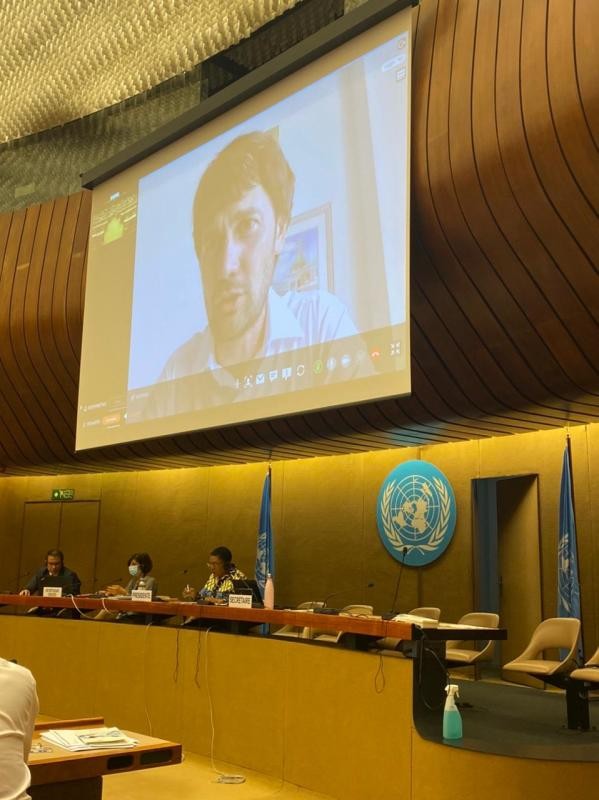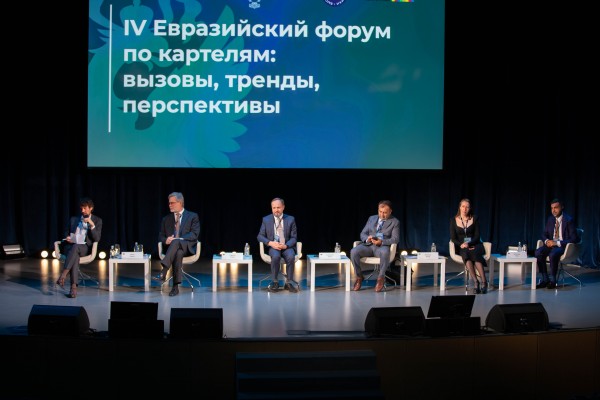On July 7, the 19th session of the Intergovernmental Group of Experts on Competition Law and Policy opened in Geneva. The session included a discussion on “International Experience and Best Practices in Competition Law Enforcement against Cross-border Cartels”. Alexey Ivanov, Director of the BRICS Competition Law and Policy Centre, took part in the discussion.
The main topics of discussion were various aspects and problems of law enforcement practice related to cross-border cartels, the contribution and role of regional economic organizations and regional policy in the field of competition and combating cross-border cartels, as well as the difficulties faced by jurisdictions investigating cartel activities. At the meeting, experts from Nicaragua, South Korea, Kazakhstan, Russia, COMESA and the Eurasian Economic Commission summed up the activities of the UNCTAD Working Group on Cross-Border Cartels.
The Working Group was established in accordance with the resolution of the 8th Conference on Competition and Consumer Protection that reviewed the UN Competition Set in October 2020. The BRICS Competition Law and Policy Center provided methodological and expert assistance to the work of the Working Group.
Alexey Ivanov, Director of the BRICS Competition Law and Policy Center, stressed that progress has been made within the framework of the Working Group's activities, and the fight against cross-border cartels is becoming a priority for the international community. “This is very interesting for the antitrust community, because for many years this topic was considered hidden, but it continued to grow, it became more and more relevant, especially for small agencies”.
International cartels have an increasing influence on the activities of antimonopoly authorities. The BRICS Competition Law and Policy Center conducted an empirical study with participation of 30 authorities, and in course of it was revealed that many departments do not know how to integrate into international cooperation and do not see available mechanisms they could use to join the global international system for preventing the activities of cartels.
“It is important that the legal framework for combating monopolies and cartels is comprehensive, this is really a challenge, but it is indeed a UN-scale challenge. UNCTAD has become the platform where cooperation takes place, and this inspires optimism,” Alexey Ivanov said.
Arman Shakkaliyev, Member of the Board, Minister in charge of Competition and Antitrust regulation of the Eurasian Economic Cooperation, noted that at the moment there is a systematic behavior of multinational companies that work through distributors and encourage unfair practices, contributing to the division of the market on a territorial basis.
Serik Zhumangarin, Chairman of the Agency for the Protection and Development of Competition, Kazakhstan, in his speech stressed that developed and developing countries are focused on solving different problems, and this creates a gap between them. To solve the problem of cross-border cartels, it is necessary to create stable agreements between various departments and stimulate cooperation.
Andrey Tsyganov, Deputy Head of the Federal Antimonopoly Service, Russian Federation, noted that the work of the Working Group was able to unite countries with established rules for investigating cartels with countries that are just beginning to develop legislative measures to regulate anti-competitive activities. Andrey Tsyganov made a proposal to develop an international document within the framework of joint work that will combine already tested and promising measures to combat cartels.




